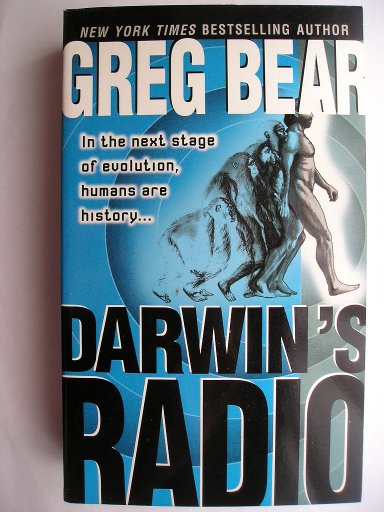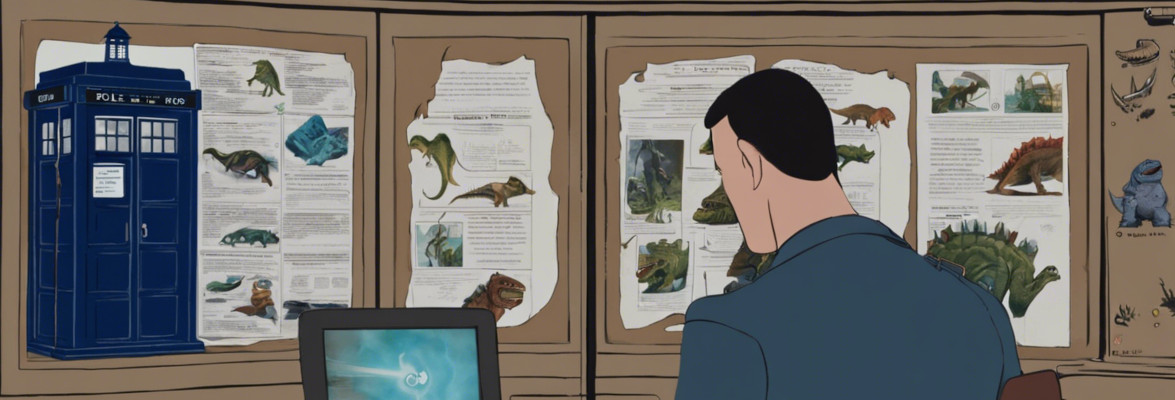
The novel “Darwin’s Radio” by Greg Bear has been published for the first time in 1999. It won the Nebula Award for best novel of the year.
Paleontologist Mitch Rafelson is in Austria, where he’s taken to a cave in the Alps where mummies truly special have been found. In fact there are a couple of Neanderthals but with them there’s a baby that shows characteristics of modern humans.
Kaye Lang is a geneticist specialized in endovirused who is called to investigate the bodies found in a mass grave in the Republic of Georgia. Initially it seemed to be victims from Stalin’s era but they turn out to be much more recent. Among them there are babies who show abnormal characteristics. When Lang seeks to go deeper with her analysis, the local government send away all the foreigners on the site.
A sudden surge in the number of miscarriages forces the U.S. government to create a task force to investigate their causes. Kaye Lang is called to be part of it and realizes that an endovirus could be the cause. The problem becomes more complex when she and a few others think that it’s not a disease but a complex biological mechanism related to evolution.
In several of his novels, Greg Bear told stories of events that have a profound influence on the history of the world, even in a destructive sense. “Darwin’s Radio” may seem another novel of this kind with the theme of genetics as the basis instead of nanotechnology. Actually, there are important differences.
In earlier more or less catastrophic novels, there was an external threat that could be of alien origin or an invention with unexpected consequences. “Darwin’s Radio” proposes what may be considered a threat to humanity but it comes from within. It’s in fact an endovirus, which is a virus or a retrovirus that in a past perhaps very remote was absorbed into the DNA of some ancestor of humans.
Because of the topic, “Darwin’s Radio” is a hard science fiction novel in which the scientific side is essential. Greg Bear usually writes that kind of science fiction and in this case science dominates the story very strongly even by the standards of this author.
In other novels, Greg Bear included made up elements of science and technology, in “Darwin’s Radio” the information on genetic research are very close to reality with real bases. Obviously, there’s considerable speculation, one of this author’s strengths, but many elements are scientific, not science fiction.
Greg Bear based this novel upon the actual existence of endoviruses but also on actual research on biological networks, meaning networks that apply to organisms in which a number of individuals can somehow work together. A typical example are hives but there are other research studying for example the dynamics that arise among the trees of a forest.
Different organisms can exchange even complex biochemical signals that may lead to changes in the system. In this novel the idea is that an endovirus that remains dormant for thousands of years may reactivate and start changing the DNA of human beings. In a really short time, this can lead to an evolutionary leap with a new species that emerges in a single generation.
“Darwin’s Radio” has strong scientific foundations but Greg Bear always looks for the human side of his stories as well. In this case, the reactions to the effects of the endovirus are mostly negative. Humanity is disastrously unprepared for what’s happening and in many cases the result is that mothers and mutants children are even killed.
The U.S. government looks for a cure for what is considered a disease and women are progressively isolated in a quarantine tha becomes broader and broader. Kaye Lang and a few others understand that in fact the endovirus has long-term effects that are not deadly, on the contrary leading to the emergence of a new living species.
Many people don’t believe Kaye Lang, others don’t want to believe her for various reasons, many don’t understand what’s happening so they get more and more agitated. The rulers tend to provide only the information that they deem necessary, for the good of the people, of course. The official assurances, however, have a limited effect.
“Darwin’s Radio” has many characters and honestly only the main ones are really developed. Even some important characters suffer from the use of some clichés: personal interests, fears and paranoia of individual characters are supposed to represent the reactions of parts of the population to a unique global phenomenon but this doesn’t always work.
Another problem is that the pace of the novel tends to be slow. This is inevitable in a story in which the scientific side is so thorough but I understand that for someone such reading can become heavy. “Darwin’s Radio” is long and, despite having an ending, leaves the big picture open to a sequel.
In my opinion, “Darwin’s Radio” contains excellent scientific speculations but is less good under other points of view. However, I think it has more merits than flaws so if you like hard science fiction stories I recommend reading it.


Permalink
Permalink